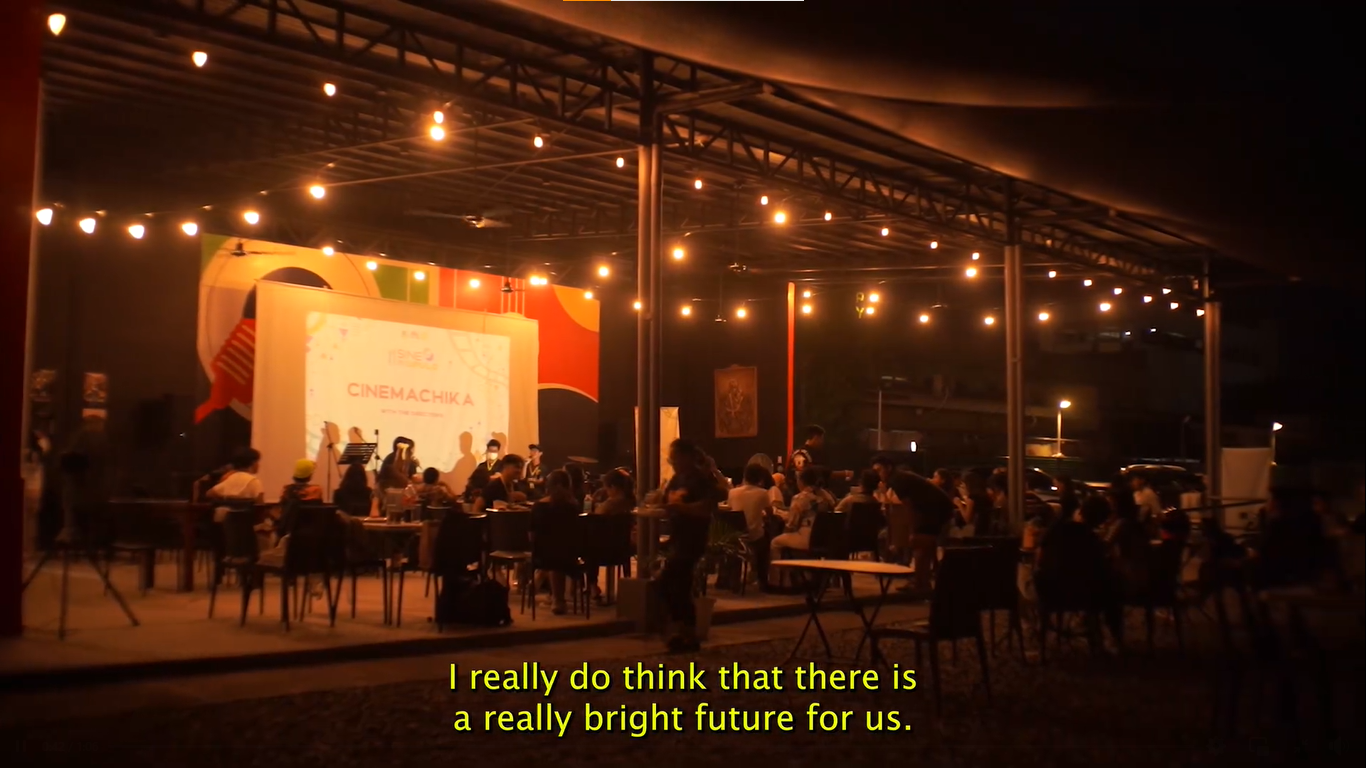CINEKURO: Presenting Confident, Liberating Filmmaking
CINEKURO: Presenting Confident, Liberating Filmmaking
Feature art by Abigail Manaluz
Kuro-kuro Productions hosted their first event on Friday, April 5, 2024 in Sine Pop!, Cubao. Named CINEKURO Echoes of Valor: Stories of Resistance and Courage, KURO-KURO presented four of their short films. Audiences certainly flocked to Sine Pop! for CINEKURO. Following a sold-out 5PM screening, which preceded a Q&A, an additional screening was added for 8PM. Selected cast and crew members were available to highlight the intent of their films and connect with an eager audience. Why wouldn’t they be? From the curation of the shorts themselves to their individual merits, Kuro-kuro introduces itself as a production company with one eye on engaging storytelling and another on the filmmakers’ advocacies, maintaining a confidence in their vision that their stories will resonate.
Cinebuano
CINEKURO’s presentation begins with Cinebuano, a documentary on Cebuano cinema’s vibrant past by director Joaquin Perocillo. Refusing to be an elegy, Cinebuano is instead a rallying cry to rekindle its light on the Philippine cinema landscape. Perocillo culls together insightful points from those who have stood on the shoulders of Cebuano cinema’s history, whether they witnessed its glorious past, hurdled through its waning period, or are plotting its impending comeback. Threading the uphill battle of Cebuano cinema’s resurgence with the equally difficult but more visible rise of Visayan pop, Cinebuano makes an encouraging case for Cebuano film that also raises the flag for Cebuano cultural expression with an infectious hope that more tastemakers from all sides of the filmmaking cycle will flock to Bisaya stories once again.
Silent Cries
Directed by Zeraly Saromines, Silent Cries refuses to hold the hands of its audience, suffusing a burgeoning tender romance with the terrifying reality of the abuse that lurks around it. Mark is a deaf teenager who lives with his sexually abusive father. Meeting a new kid, Dom, Mark gradually warms to the possibly deeper connections that develop between them. However, Mark’s father remains less than supportive of him, ensuring that only a warped sense of love is what Mark experiences. Saromines charts the romance and tonal downturn with precision, writing with palpable frustration on how hearing people fail to truly connect with deaf people while crafting it with tension that sizzles beyond its final image.
To Become A Mother
To Become a Mother is a riotous celebration of motherhood, both literal and cultural, written and directed by Von Viernes. Giliw has wanted to become a mother for the longest time, sharing this hope with her reluctant partner, Roy. When Roy leaves surreptitiously with Giliw’s motorcycle and goldfish, Giliw waits for the opportunity to concoct a vengeance that will finally fulfill her desire for motherhood. Viernes mines rich humor from the unique experiences of trans relationship woes with cinematic panache, ensuring that Serena Magiliw’s star-making turn as a trans woman scorned is ingrained into the audience’s hearts.
Daluyong
Janelle Basallo directs Daluyong, which sees Drew as a boy who reluctantly learns “lambat,” the Filipino way of fishing. When he loses his father to the ocean, Drew’s hesitance to learn and his grief meld in the dreams where his father continues teaching him. The memory of his father’s presence reverberates into his maturation as a young man until he gradually accepts his current reality, allowing his father’s lessons to carry him into an uncertain future. Basallo casts a gaze of melancholy in seaside Infanta, Quezon, where Daluyong was filmed, knowing just how much the rug pulling grief does to its targets looms on them. Its restrained conclusion refuses to leave things on a downtrodden note, showing that grief has room in a soul that still has a lot to look forward to in life.
CINEKURO’s curation of the four shorts shows that the student filmmakers that built Kuro-kuro from the ground up already know how to hold the audience’s attention with their filmmaking as well as programming. Its presentation of four filmmakers who know how to tell stories worthy of the big screen with substantial thematic material is an indication that they are well on their way towards making a bigger splash in larger platforms. The question is, which festival programmer will be the first to snap up their stories of courage and resistance?






















